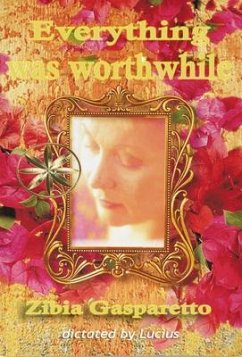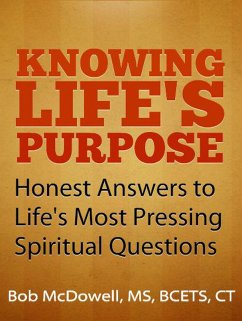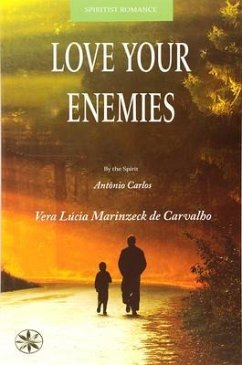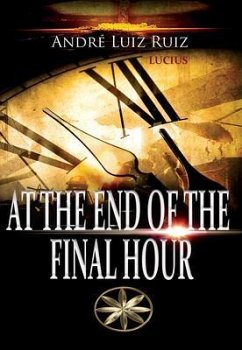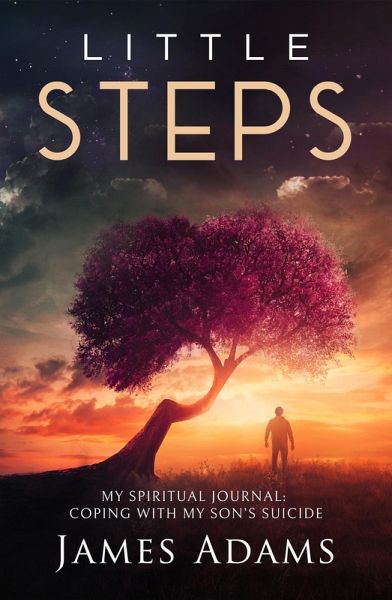
Little Steps (eBook, ePUB)

PAYBACK Punkte
0 °P sammeln!
This book is a journal documenting how I survived the traumatic loss of my son Andrew through suicide on November 7, 2009. At the time my son committed suicide, I had been keeping a journal off and on for most of my life. These conversations seemed to occur when my questions and issues were personal, emotionally charged, and usually beyond my coping skills. My book begins in the month of August 2009 when I was deep into reading a series of books by Neale Donald Walsch which began with Conversations with God: An Uncommon Dialogue, Book 1 and his newest book, which I was just beginning to read, ...
This book is a journal documenting how I survived the traumatic loss of my son Andrew through suicide on November 7, 2009. At the time my son committed suicide, I had been keeping a journal off and on for most of my life. These conversations seemed to occur when my questions and issues were personal, emotionally charged, and usually beyond my coping skills. My book begins in the month of August 2009 when I was deep into reading a series of books by Neale Donald Walsch which began with Conversations with God: An Uncommon Dialogue, Book 1 and his newest book, which I was just beginning to read, When Everything Changes, Change Everything. Even though my son died in November, I started this book beginning with August because that provides background information as to what was going on in my life and Andrew's life in the months leading up to his suicide. Also, this is a way for me to introduce you to my journal's conversational style of writing. Mind you, in my own journal writing, I rarely if ever figured out who I was hearing or who was answering my questions; I was just glad to have some other clearer and wiser viewpoint to help me see my way through stressful situations. Every time I pressed whomever I was listening to for names and titles, I got brushed off. The voices' argument was: "If you are going to use the information that comes to you, it is your responsibility to take ownership of it, and of the consequences brought to you by using that information, not because something or someone else was telling you what to think." As I wrote in my journal during these conversations, these voices in my head sounded like my own voice but I could easily identify them due to the quiet, calm tone and depth of wisdom they emanated. As I wrote them down, I knew how the conversation unfolded but not how it would look in writing, so in this book I created some formatting identifier to tell when it's me talking and thinking or when it's "someone else" doing the talking. As a result, I use brackets and italics to identify "their" contributions to the conversation. And then, occasionally I hear voices from people I do know and I can identify. Mostly it's family members and friends who have died or "crossed over," or happen to be teachers, authors, or characters in books I am reading, and hearing them as they communicate with me. At those times, I can visualize them or use their actual names and I put their part of the conversation in bold italics so you, the reader, can tell them apart from my other conversations. Having had years of conversations and insights helping me cope with everyday issues I was so thankful that those conversations continued through the loss, shock, grief, and recovery from Andrew's suicide. What follows are my journal entries for the days noted at the top of each entry. Wherever possible I kept the conversations sounding just like I heard it. What you read is what I wrote as I was experiencing it.
Dieser Download kann aus rechtlichen Gründen nur mit Rechnungsadresse in A, B, CY, CZ, D, DK, EW, E, FIN, F, GR, H, IRL, I, LT, L, LR, M, NL, PL, P, R, S, SLO, SK ausgeliefert werden.







